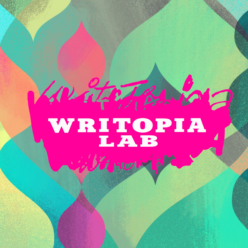The autumn leaves are twirling in the air from nearby trees. I walk to a bench with a book tucked under my arm. The breeze swirls in the air, blending in with the laughter of children. On the bench, I observe everything around me. Children are playing tag, adults are supervising, and there is the smell of coffee from the teacher’s lounge.
I set my book on my lap. The cover has images of foxes chasing after each other, insects hanging to leaves, monkeys and exotic animals staring back at me. In the center of the cover, it says: On The Origin Of Species in big, blocky letters. Underneath it says: by Charles Darwin, adapted by Rebecca Steffof. Flipping through the pages, I reach my favorite one. The one with Darwin’s thoughts on survival of the fittest.
My mom borrowed it from the library because of my interest in science. I continued reading it because of my thirst for knowledge. Even though it wasn’t a school assignment, I used my spare recess time to reach the end of it. I wanted to know how everything started, who Charles Darwin was, and what he had to say in this book. Before I even started reading it, I knew it was a discovery of a hidden want for science.
I’ve never really dug very deep into science, I used to be confused on what my job would be as I grew up. In the end, I narrowed my interests. With new goals, I decided to find out even more about my passions and had my mom borrow any science-related books. However, my school doesn’t teach many science lessons or explain the math or people behind these ideas. As a result, I haven’t figured out what field of science I would like to study. There are many topics that I need to be introduced to.
It made me feel more knowledgeable to learn more about past scientists and their theories. It showed me that many things have adapted to new things, just like me. I adapted to my new interest in science. My passions were like species, just as Darwin said, survival of the fittest. There was only that much space for life on Earth. Either they went extinct, were endangered, or brought new strategies to their lives. Piano, in my world for passions, was an extinct species, replaced by a better descendant, drumming. Science was a new species that had been unearthed. Shading was a species merely surviving. Just like mammals during the Triassic period. It taught me that our own lives held fields of competition whether visible or not, humans were always adapting.
I have learned that the world around us is constantly changing. It may take a long time to realize, but we’ll still recognize it at some point. We can start by noticing how we change, on the outside and on the inside. Then, like Charles Darwin, we look to the world, animals, and others. Survival of the fittest has appeared many times in history, from cells to dinosaurs to humans. We are always adapting.
